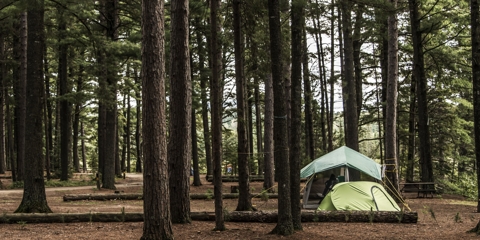The Massachusetts Recreational Use Statute, Mass. Gen. Laws ch. 21, § 17C, was enacted in 1972 “to encourage landowners to permit broad, public, free use of land for recreational purposes by limiting their obligations to lawful visitors under common law.” Ali v. Boston, 441 Mass. 233, 238 (2004). The Statute provides, in relevant part:
Any person having an interest in land including the structures, buildings, and equipment attached to the land . . . who lawfully permits the public to use such land for recreational . . . purposes without imposing a charge or fee therefor . . . shall not be liable for personal injuries . . . sustained by such members of the public . . . while on said land in the absence of willful, wanton, or reckless conduct by such person.
Practically, under the Statute, land owners owe public recreational users only the duty of care they would owe to trespassers, not the “reasonable duty of care” landowners would owe lawful visitors. Ali, 441 Mass. at 237.
Both the Massachusetts Supreme Judicial Court and the Appeals Court have recently addressed the Statute, providing some guidance, and limitation, on its application. See Murray v. Town of Hudson, 472 Mass. 376 (2015); Amaral v. Seekonk Grand Prix Corp., 89 Mass.App.Ct. 1, review denied, 474 Mass. 1101 (2016).
Murray v. Town of Hudson
In Murray, the SJC addressed, and expanded the application of, the “special relationship” exception to the Statute. The plaintiff was a Milford High School pitcher who was injured in the visitors’ bullpen warming up to play against the Hudson home team. The field was in a public park owned and maintained by the Town of Hudson. The injured pitcher blamed the lighting and poor construction of the bullpen for his injuries.
The Town acknowledged that if one of its own student pitchers had been injured, then the special relationship that it had with that student would bar the application of the Statute. But, the Town argued, it had no special relationships with players from the visiting high school. According to the Town, the Statute applied and to proceed with his case, the plaintiff needed to meet the higher burden of proving that the Town had been willful, wanton, or reckless.
The SJC rejected the Town’s argument. The SJC explained that if it adopted the Town’s argument, then the Town could maintain the home team’s and visitors’ bullpens under different standards of care. “This not only would be poor sportsmanship; it would be bad law.” Murray, 472 Mass. at 382. According to the SJC, because the Town invited the visiting team to use the field in an interscholastic game against its own team, it owed all players the same duty of care. It is worth mentioning that the SJC did not cite to any decisions where inviting someone on your property specifically, as opposed to generally, creates a special relationship.
Amaral v. Seekonk Grand Prix Corp.
In Amaral, the plaintiff was injured while watching her two sons drive go-carts at the defendant’s facility. She was hurt when another go-cart driver crashed through a fence and struck her. The plaintiff had to buy tickets for her sons so they could drive the go-carts, but she was not required to pay an admission fee to watch her sons’ race. The plaintiff filed a negligence suit against the track owner seeking to recover damages for her injuries.
The Appeals Court held that the Statute did not bar the plaintiff’s negligence claim because she was using the facility for the recreation of her children, and she paid for that use by purchasing tickets. The Court reasoned that the defendant could anticipate that a parent accompanying minor children and paying a fee on their behalf would qualify as a paying customer under the statute. In other words, the Appeals Court applied the same type of logic that the SJC followed in Murray. It decided against an approach that would apply a different standard of care for visitors who were on the property for a common (or at least closely related) purpose.
Of note, the Appeals Court stated that it did not need to decide whether entering land for the sole purpose of watching others engaged in a recreational activity itself qualifies as recreation under the Statute. Rather, the Court held that Grand Prix collected, and the plaintiff paid, a fee for her particular use of the land. It would be interesting to see how the court would decide the issue if a person was injured but had not paid a fee to enter the premises and did not pay a fee for anyone else because the Statute does not define what constitutes “recreation.”
Practical Impact of Murray and Amaral
One view of these cases might be that they demonstrate a trend by the courts to limit the use of the Statute. But another view is that any trend is against expanding the use of the Statute where doing so would be contrary to notions of common sense and fairness. Either way, the Statute is still law and it still provides protection to landowners who allow others to use their property for recreational purposes without charging a fee. Landowners who are willing to keep their properties open for recreational purposes must keep in mind, however, that the Statute has its limitations and exceptions. They must be mindful of the circumstances under which they grant access to their property. If they want to charge a fee of any kind related to this access, then they should be prepared in case they are sued under a theory of ordinary negligence. This includes taking reasonable precautions to protect visitors from harm and carrying adequate insurance to provide coverage for all foreseeable risks.
If you have any questions about how the Recreational Use Statute may apply to your property or to those of your insureds, we welcome you to contact us.


